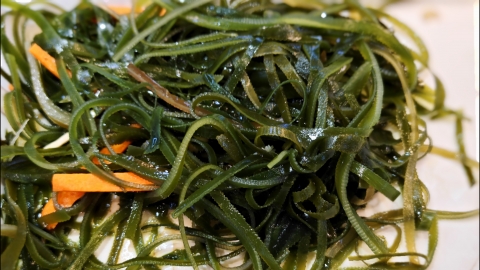Can kelp and lamb be eaten together?
Generally speaking, kelp and lamb can be eaten together. Details are as follows:

Kelp is rich in iodine, dietary fiber, unsaturated fatty acids, calcium, phosphorus, selenium, and other nutrients, which help promote the synthesis and secretion of thyroid hormones and enhance the body's metabolism. Lamb is rich in high-quality protein, fat, cholesterol, carbohydrates, and various minerals. It has the effect of nourishing the kidneys, strengthening yang, and warming the spleen and stomach, and can enhance human immunity. Eating them together can complement each other nutritionally, providing the body with more comprehensive and abundant nutrients.
However, lamb is warming in nature, and excessive consumption may worsen symptoms for individuals with internal damp-heat or excessive liver fire. For those with weak digestion, the plant fiber in kelp and the fat in lamb could potentially cause indigestion or abdominal distension if consumed in large quantities. Furthermore, both kelp and lamb are high-purine foods, and excessive intake by individuals with gout may exacerbate their condition.
In daily diets, it is recommended to appropriately combine foods based on individual constitution and health status. While enjoying delicious food, attention should be paid to balanced intake of various nutrients, avoiding excessive consumption of any single food item in order to maintain good health.






